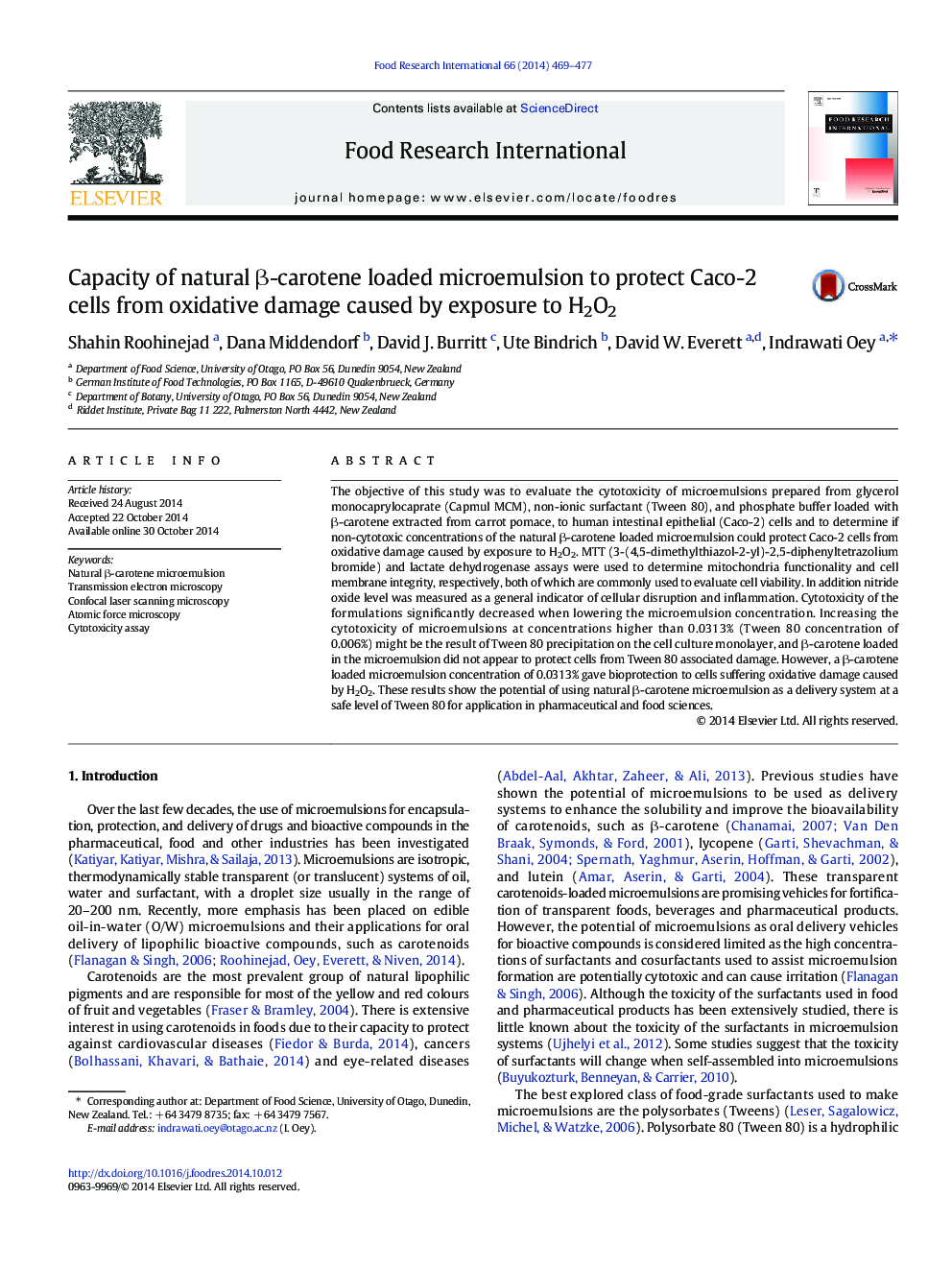| Article ID | Journal | Published Year | Pages | File Type |
|---|---|---|---|---|
| 6396282 | Food Research International | 2014 | 9 Pages |
Abstract
The objective of this study was to evaluate the cytotoxicity of microemulsions prepared from glycerol monocaprylocaprate (Capmul MCM), non-ionic surfactant (Tween 80), and phosphate buffer loaded with β-carotene extracted from carrot pomace, to human intestinal epithelial (Caco-2) cells and to determine if non-cytotoxic concentrations of the natural β-carotene loaded microemulsion could protect Caco-2 cells from oxidative damage caused by exposure to H2O2. MTT (3-(4,5-dimethylthiazol-2-yl)-2,5-diphenyltetrazolium bromide) and lactate dehydrogenase assays were used to determine mitochondria functionality and cell membrane integrity, respectively, both of which are commonly used to evaluate cell viability. In addition nitride oxide level was measured as a general indicator of cellular disruption and inflammation. Cytotoxicity of the formulations significantly decreased when lowering the microemulsion concentration. Increasing the cytotoxicity of microemulsions at concentrations higher than 0.0313% (Tween 80 concentration of 0.006%) might be the result of Tween 80 precipitation on the cell culture monolayer, and β-carotene loaded in the microemulsion did not appear to protect cells from Tween 80 associated damage. However, a β-carotene loaded microemulsion concentration of 0.0313% gave bioprotection to cells suffering oxidative damage caused by H2O2. These results show the potential of using natural β-carotene microemulsion as a delivery system at a safe level of Tween 80 for application in pharmaceutical and food sciences.
Keywords
Related Topics
Life Sciences
Agricultural and Biological Sciences
Food Science
Authors
Shahin Roohinejad, Dana Middendorf, David J. Burritt, Ute Bindrich, David W. Everett, Indrawati Oey,
